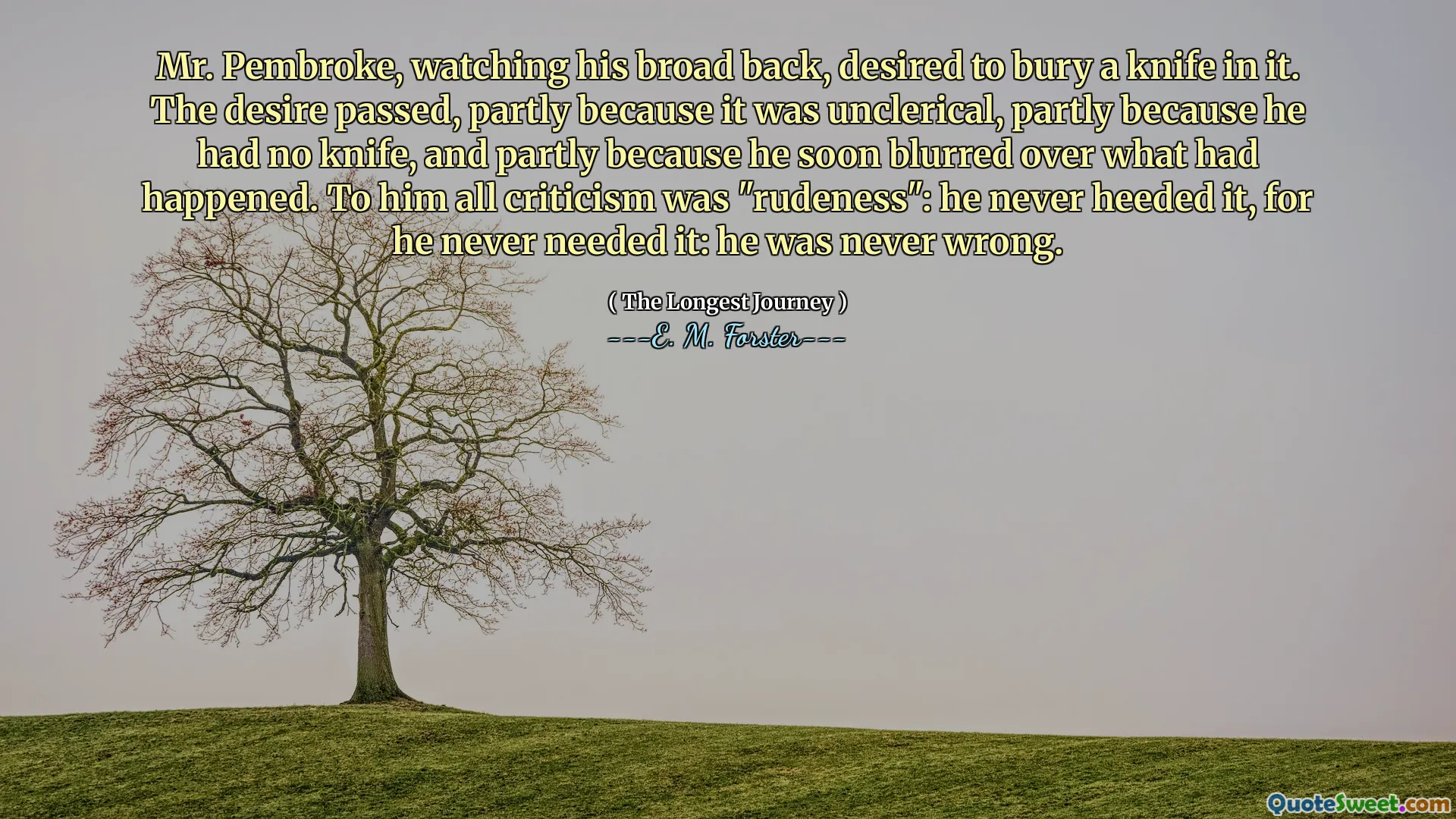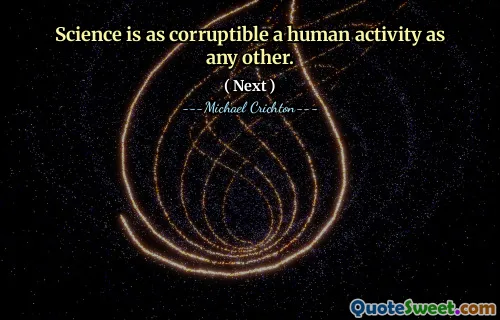
Mr. Pembroke, watching his broad back, desired to bury a knife in it. The desire passed, partly because it was unclerical, partly because he had no knife, and partly because he soon blurred over what had happened. To him all criticism was "rudeness": he never heeded it, for he never needed it: he was never wrong.
This excerpt reveals a character's rigid self-assurance and the subconscious defense mechanisms that shield him from external critique. Mr. Pembroke's desire to harm another signifies underlying tensions or perhaps a projection of his frustrations onto others. However, the fleeting nature of this impulse underscores the typically human tendency to suppress destructive urges, especially when societal or personal inhibitions are at play. The fact that the desire subsides because he lacks a knife or because he forgets what occurred highlights the fluidity of human emotions and how easily they can be dismissed or forgotten when not acted upon.
More revealing is the portrayal of his attitude towards criticism. Labeling all critique as 'rudeness' signifies his defensiveness and possibly a deep-seated lack of self-awareness. His assertion that he is 'never wrong' acts as a psychological armor, erasing the possibility of introspection or growth. Such a mindset could be the foundation of stubbornness and poor interpersonal relations. It also suggests a personality that constructs an unassailable self-image, resistant to any discrepancy or challenge.
In literature, characters like Mr. Pembroke serve as cautionary archetypes that reflect the dangers of excessive ego and the inability to accept feedback. This portrayal prompts readers to consider how self-deception and denial can disfigure personal development and human connections. Ultimately, the quote underscores the importance of humility, openness to criticism, and the recognition of one's vulnerabilities—traits that foster genuine understanding and progress.
---E. M. Forster---, from '(The Longest Journey)'


